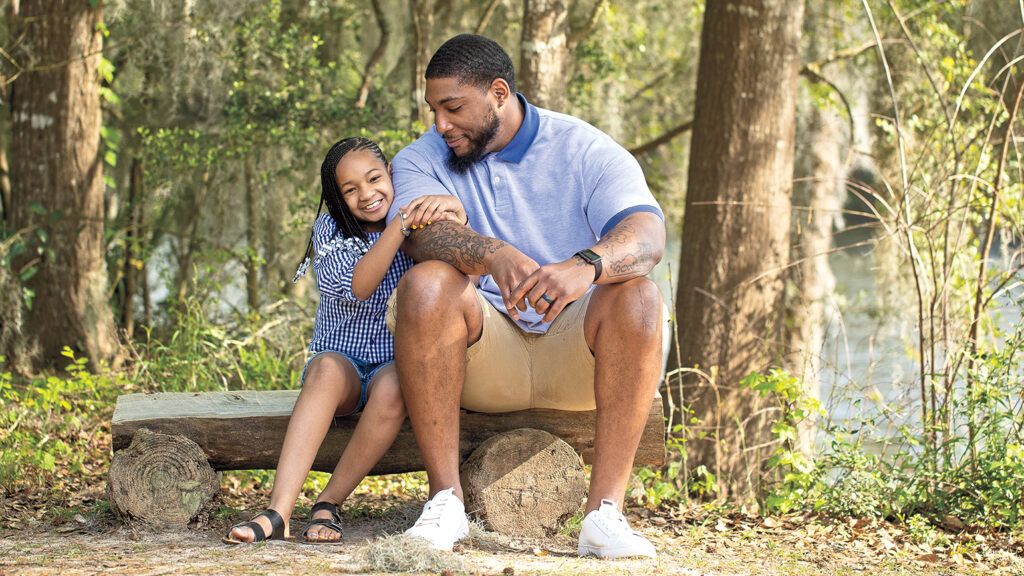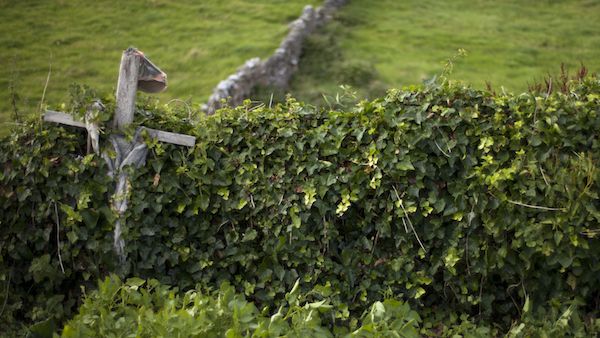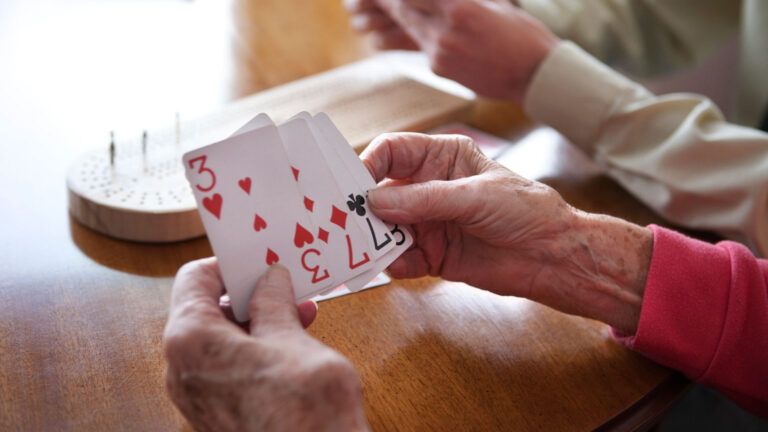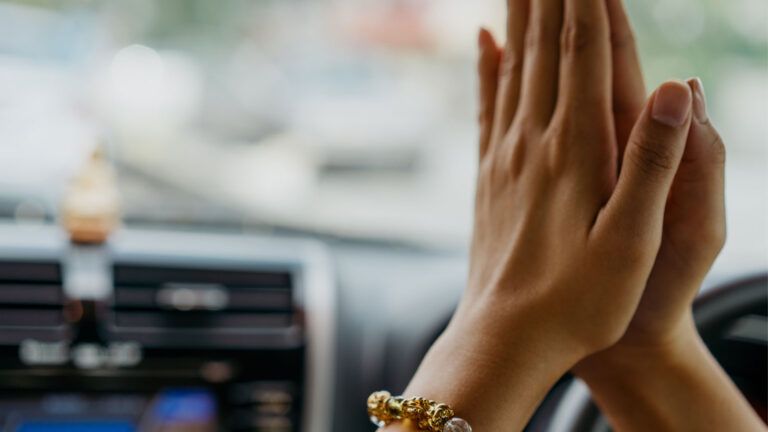I’m a person of faith, though there have been times I’ve felt disconnected from God. Like when injuries threatened to derail my NFL career. I’d remember what my grandma told me when she was dragging me to church as a kid back in Wilmington, Delaware. “The good Lord speaks to all of us, Devon, but you’re never going to hear him if you don’t open your ears and listen.”
I grew up and joined a church of my own, and while I felt closer to God, it still seemed as if I was doing all the talking. I tried not to take it personally—until Leah, my sweet four-year-old daughter, got sick with cancer. I really needed to hear directly from him then.
Leah had to undergo four grueling rounds of a combined radiation/chemo treatment. People around the world, moved by the story of a pro football player fighting to help his critically ill daughter, were praying for her. It wasn’t enough. The doctors said she needed surgery. Our last best hope. The night before her operation, I’d never seen her so scared. I couldn’t comfort her. I was as scared as she was.
“Are they going to cut me with a real knife?” she asked, her voice trembling.
God, what do I tell her? What do I say to ease her fear?
I didn’t expect an answer, not like my grandma used to get. To hear her tell it, the Almighty talked to her in a booming Old Testament voice, one there was no mistaking. I was never going to have that kind of relationship with God. I knew I owed everything to him. Still, was it too much to ask for some actual spoken words?
When I was growing up in Wilmington, my parents weren’t churchgoers. Then they divorced, and in fifth grade I started acting out, stealing money from my school counselor and buying pizzas with it. Long story short, my mother found out what I was doing. (Mothers always find out.) She told my grandma, and for a few months I went to the Baptist church with her every Sunday. She’d taken me to church before, but this time I knew I was being punished. I refused to listen to a word the preacher said. Until he got to the prayer part, the idea that God could get you out of a jam—that was what got my attention. I needed all the help I could get. I foresaw many jams in my future.
That’s where football became my salvation. I was a defensive lineman. By junior year of high school, I was six foot five—and fast. Football felt like what I was meant to do. But football is punishing. I was always getting hurt. At Penn State, where I got a scholarship, I was injured my entire freshman and most of my sophomore years. An operation on my leg left me with a scar six inches long. I prayed a lot over that, though sometimes I wondered why God would bother with me.
I’d done some questionable things, such as getting a woman pregnant in my junior year. That’s how Leah had come into the picture. God had turned the biggest mistake of my life into a precious gift. I’d been crazy about her from Day One. Her mother and I had tried to make it work, but we were so young. But I vowed to always be there for Leah. I was drafted by the Cincinnati Bengals. That’s how I met Asha. She was the best thing to happen to me since football. She made me want to be a better person. Way better. A friend had invited her to a party before I left for Bengals training camp. We’d kept a long-distance relationship going for two years now. She loved Leah as much as I did.
But the injuries and setbacks kept coming. Eight games into my rookie season, I was benched for the year when a veteran returned from injuries. My second year, I dislocated my elbow and missed four games. Then in December 2013, playing against the Pittsburgh Steelers, I strained my back. By that night, I couldn’t walk. Again, I needed surgery. The pain was unrelenting. An ultrasound revealed three blood clots in my lungs. “You’ll never play football again,” the doctor said.
“Why does everything keep going wrong?” I asked Asha. I was practically in tears.
“Maybe you need to have a real relationship with God,” she said. “Not just a help-me-out-of-a-jam one.”
We joined a Pentecostal church. Man, they prayed hard there. And they welcomed Asha and me with open arms. For the first time, I understood the importance of a church community. A team that always has your back. A month after we started going, I went back to the doctor. The blood clots were gone. All those prayers, said by people who barely knew me. I knew I’d been led there. That April, Asha and I got baptized. Finally it felt as if my life had turned a corner.
Two months later, in June, Leah was diagnosed with a mass growing in her abdomen. Stage IV neuroblastoma. Right there in the hospital waiting room, I fell to my knees. I’d never taken a hit that hard playing football. My head was spinning. And I felt a flash of anger. What did God want from me? Then I thought of the people at church, their incredible support. I was going to need them more than ever. But more than ever, I craved that one-on-one connection to God. His voice booming in my ears. As it had for my grandmother.
The treatment required Leah to spend five days in the hospital, then 21 days recovering, each round. There were critically ill children all around me. I couldn’t ignore the hurt these other families were going through. One day Leah and I went to the hospital’s children’s playroom. There was a girl there maybe eight years old, doing a puzzle while attached to a chemo drip. Her single mother was working. This girl had no one there for her. And she was not the only one suffering. Another family was fighting to take their dying daughter home, but their community had no hospice program. The hospital wouldn’t agree to it. There were families with financial worries. Babies only months old with cancer.
I wanted to help them. I reached out to some journalists I knew. Within days, it seemed as if the whole country was talking about Leah and about the hardships that families of children with cancer face. I started posting pictures and regular updates on my Instagram account, mainly as a way to cheer up Leah. In a week, I had tens of thousands of followers. Then half a million. Thousands of messages of support every day. I read them to Leah. “I can’t believe all these people are praying for me,” she said, giggling. “I’m a star!”
By August, I had to be at training camp. My coaches let me skip a couple days each week to go home to be with her, but it killed me being away from Leah. She was losing weight, looking more sickly. I called her every chance I got, sometimes sneaking out of team meetings. A week before our season opener, my coach called me into his office. “You’re being cut,” he said. “I’m sorry. You’re just not focused enough.” They offered me a position on the practice squad. It would be far less money, but I’d be able to keep my health insurance. The newspapers wrote about that too. Big-time. A week later, I was back on the team when a spot opened up.
The Bengals announced they were selling jerseys with my number—75—for $100 each, with all proceeds going to Cincinnati Children’s Hospital. By week’s end, they’d sold more than $400,000 worth of jerseys.
Sitting on the edge of Leah’s bed, the night before her operation, none of that mattered. God, a little help here? Nothing. The room was deathly silent. Finally I opened my mouth.
“You know, I’ve been through a lot of surgeries, and I’m fine. If surgery hurt me, would I be able to play football?”
“No,” Leah said. “But are they really going to cut me? With a knife?”
I pulled up my pant leg, pointing to that six-inch scar. “The doctors had to cut my leg open and put screws inside. I didn’t feel a thing. They gave me medicine that let me sleep through it, just like they will you.”
“So it’s not that scary?” Leah said.
“No, baby. It’s a good thing.”
“I want the cancer out of me,” she said. “And God wants it too. He told me.”
“You talk to God?” I said.
“He tells me he believes in me,” my little girl said, “and no matter what I go through, he says, ‘Be strong.’”
“He said all that to you?
“Yeah,” she said. “God talks in all different ways, right?”
Slowly I nodded, trying to process everything I was hearing. I thought of all the people who had lifted me up over the years: my family, fans, coaches, church family, all the prayers they’d said for me, the people I’d met at the hospital, the hundreds of thousands of folks who had responded to Leah’s story, the money we’d raised, the strength I’d gotten from Asha…and Leah. Beautiful Leah. From the mouths of babes. My entire life God had been talking to me, in ways I just hadn’t been hearing.
“That’s right, baby,” I said, softly rubbing Leah’s back. She was lying down. Minutes later, she was fast asleep.
It’s been five years since Leah had that surgery. She’s been in remission since 2015. In fact, she was the flower girl when Asha and I got married. I no longer play football. I meet with groups across the country as an advocate for children with cancer, talking to people about overcoming life’s challenges. And encouraging them to listen for the voice that’s always there, as long as we’re listening.
For more inspiring stories, subscribe to Guideposts magazine.







